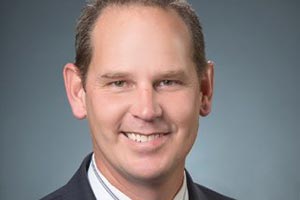Port of Vancouver CEO Todd Coleman Unexpectedly Resigns

Todd Coleman became CEO of the Port of Vancouver just after it turned 100, a milestone marking a century of relative political peace within the community.
In the four years and 19 days since taking the reins, Coleman put the port on the global battlefield of fossil fuel policy, the regional front lines of rail safety and in the local spotlight over transparency.
Now, with all eyes on the port, Coleman has left the building.
Coleman, 47, surprised many when he tendered his resignation May 4. His final day as the port’s executive director was May 19, and he leaves a legacy far more contentious than those of recent predecessors who served three times as long.
“I always believe leaders have seasons within an organization,” he said in an interview earlier this month.
Then this must have been the season of beginnings and endings after four eventful years leading Washington’s third-largest port.
While the port’s three elected commissioners — Coleman’s bosses — were surprised at his going-away announcement, Coleman apparently only wanted to serve four years as CEO, regardless of the initiatives he left unfinished. Among them are newer long-term ventures — such as the proposed oil terminal and waterfront redevelopment — and those much closer to fruition — such as the $275 million West Vancouver Freight Access project or the Centennial Industrial Park.
“I like doing the operations side of things,” said Coleman, who spent a total of 15 years at the port. “I was not that keen on taking the executive director role but saw there were a number of initiatives we had begun … and I had agreed to do that for four years.”
With interim CEO Julianna Marler in place, commissioners now must find a permanent replacement and decide whether to find an outside voice or pick one of Coleman’s rank-and-file who will continue his legacy.
Whether it will all turn into a huge mess or a great success, Coleman can say one thing of the high-profile issues now surrounding the Port of Vancouver: “I did that.”
In 2013, the port started discussions with a couple of companies called Tesoro Corp. and Savage Cos., now familiar as the forces behind the proposal for the nation’s largest rail-to-marine oil terminal. That nearly 3-year-old proposal, dubbed Vancouver Energy, still is slogging through the state permitting process, awaiting a recommendation from the state Energy Facility Site Evaluation Council and final approval or rejection by the governor.
Rather than wait out the public finale of the process he started behind closed doors with commissioners all those years ago, Coleman is leaving right as things are heating up for the 360,000-barrels-per-day terminal.
The port commission just extended a lower-cost contract to make sure the terminal at least gets a permitting decision from the state, likely by next spring. The evaluation council is holding trial-like adjudication hearings on the project this summer. A poll conducted for the port this spring shows a community split over the terminal, but opponents have always made the most noise.
That constant clamor likely has put a ringing in Coleman’s ears, though he knew he would be standing closest to the speakers when he booked the band. Or perhaps, given the port’s quiet past, the all-out opposition to the terminal in a community not known for political activism wasn’t exactly expected.
As Commissioner Brian Wolfe put it after learning of Coleman’s planned departure: “It’s more stressful to him than he lets on.”

